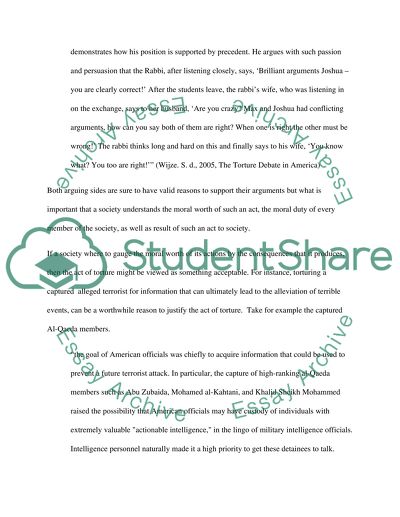Cite this document
(“Torture and Ethics Essay Example | Topics and Well Written Essays - 1500 words”, n.d.)
Torture and Ethics Essay Example | Topics and Well Written Essays - 1500 words. Retrieved from https://studentshare.org/law/1431513-torture-and-ethics
Torture and Ethics Essay Example | Topics and Well Written Essays - 1500 words. Retrieved from https://studentshare.org/law/1431513-torture-and-ethics
(Torture and Ethics Essay Example | Topics and Well Written Essays - 1500 Words)
Torture and Ethics Essay Example | Topics and Well Written Essays - 1500 Words. https://studentshare.org/law/1431513-torture-and-ethics.
Torture and Ethics Essay Example | Topics and Well Written Essays - 1500 Words. https://studentshare.org/law/1431513-torture-and-ethics.
“Torture and Ethics Essay Example | Topics and Well Written Essays - 1500 Words”, n.d. https://studentshare.org/law/1431513-torture-and-ethics.


